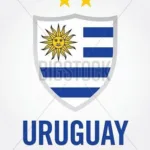Why Uruguay Should Wear Two Stars on Their Crest

Uruguay have won the World Cup 2 times, an incredible feat for a country of their size. But if you look at their jersey, you will see 4 stars on their crest, symbolizing 4 World Championships. While Uruguayans would argue that they have in fact won 4 World Championships, this article will explain why they have not, or at least have only won 2 tournaments that can consistently and objectively be considered World Championships by all standards.
The explanation that the Uruguayan FA gives for displaying 4 stars on their crest is that the 1924 and 1928 Olympic soccer tournaments were “principally administered by FIFA” and were open to professionals. They also reference examples in history of people or newspapers calling their Olympic gold medals “world championships.” The problem with these arguments is that they are based on partial affirmations, with descriptive words like “principally.” Additionally, beyond scattershot details, the facts given are done so retroactively.
Beyond anecdotal references of their 1924 and 1928 Olympic Golds as World Championships, there is no consistent, objective source that confirms this from the outset. During a time when there was no unambiguous World Championship, a couple reporters or newspapers calling the Olympic Gold medalists “World Champions” does not make it objective fact. Any evidence beyond this is only coherent and consistent insofar as it is being made by advocates of Uruguay wearing 4 stars on their crest. Olympic Gold medals in 1924 ad 1928 were never codified as clear World Championships in the way the FIFA World Cup was. It was only many decades after the fact when Uruguay’s FA, making the defense of their 4 stars, provided evidence for why the Olympic tournaments in 1924 and 1928 were effectively the same as the World Cup, and FIFA did not object.
Unless there was official codification at the time of the Olympic tournaments, there is no basis for a retroactive inclusion of Olympic tournaments as soccer World Championships alongside FIFA World Cups to be seen as legitimate. This is amplified by the fact that there was no official differentiation of the 1924 and 1928 Olympic tournaments from the previous Olympic tournaments. During the time of the Olympic tournament, there was no international soccer tournament of higher value. But at the same time, it was never the unambiguous, official, World Championship of the sport. This changed the moment the FIFA World Cup started. It was made exclusively by a worldwide soccer organization that leads international soccer to this day.
The criteria for a World Championship of any sport should be consistent and unambiguous. It should not include scattershot examples of phrases used in the past. And it should be recognizably codified from the beginning. This is to take nothing away from Uruguay’s remarkable soccer history. Their 2 World Cup wins, as well as their numerous other deep runs in the World Cup should be celebrated as an example of a small country punching well above their weight in the most popular sport in the world. But the remarkable nature of Uruguay’s achievements should not cloud the judgement of what constitutes a World Championship. Uruguay is one of only 6 countries in the world to have won 2 World Cups and should display 2 stars on their jersey with just as much pride as they have displayed 4 stars on their jersey in the past.

